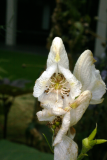Additional notes (click to expand)
Medicinal
Banned.
Phytochemistry
Active Principle: All parts es[pecially tubers: Aconitine, mesaconitine, lycoctonine and other terpene alkaloids (up to 2% in tubers).
Wink, M. (2009). Mode of Action and toxicology of plant toxins and poisonous plants. Mitt. Julius Kuhn-Inst. 421:93-111.
Toxicity
Toxicity 1a: extremely hazardous. Aconitine activates Na+ channels and is thus a strong nerve and muscle poison, causes numbness, causes paralysis.
Wink, M. (2009). Mode of Action and toxicology of plant toxins and poisonous plants. Mitt. Julius Kuhn-Inst. 421:93-111.
Aconitum napellus L. 'Albidum'
Family: RANUNCULACEAEGenus: Aconitum
Species: napellus L.
Cultivar: 'Albidum'
Distribution summary: Europe
Habit: Perennial
Hardiness: H5 - Hardy; cold winter
Habitat: High altitude woodland, damp woods, river banks
Garden status: Currently grown
Garden location: Plants of the World (C), Display bed (R), Poisons garden (PETO)
Reason for growing: Medicinal, toxic
.JPG)
.JPG)
.JPG)
 and bee .JPG)
 and bee .JPG)
 and bee .JPG)
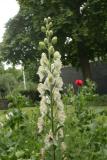
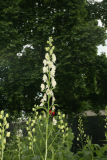
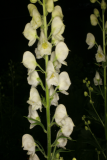
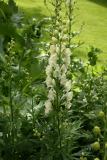
.JPG)
.JPG)
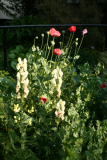
.JPG)
